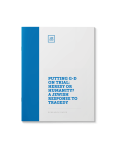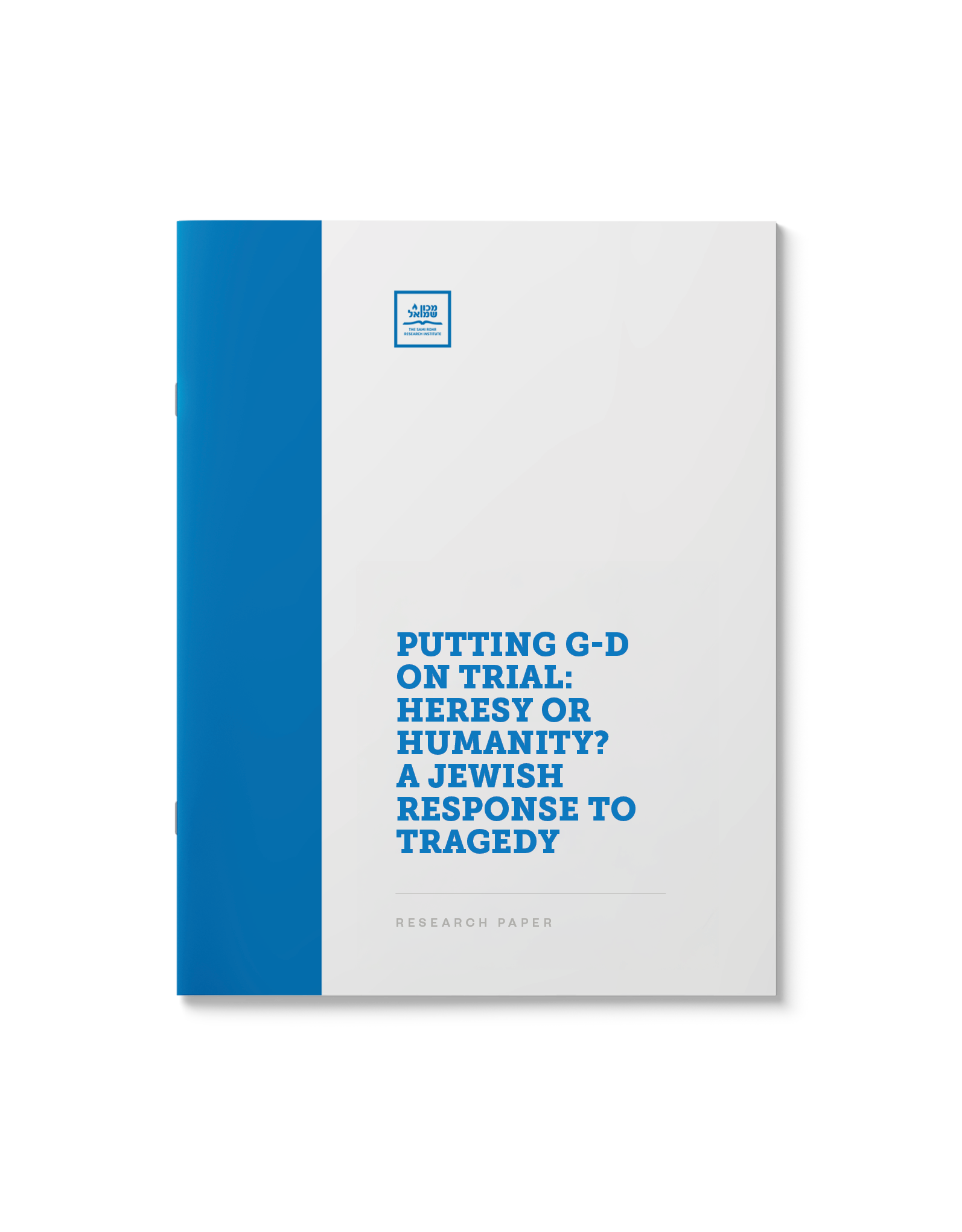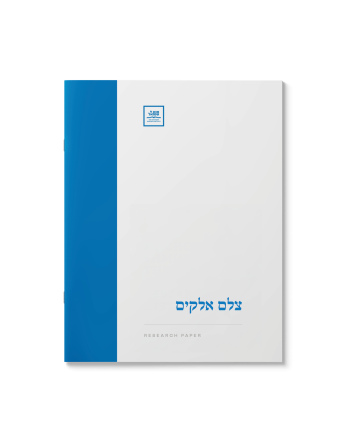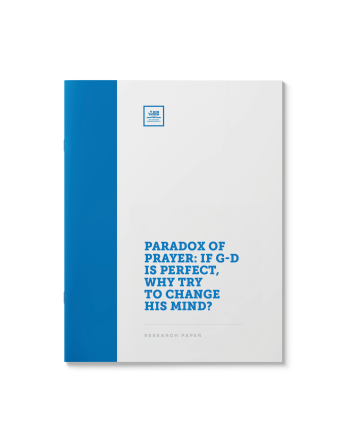Putting G-d on Trial: Heresy or Humanity? A Jewish Response to Tragedy
$75.00
When tragedy strikes, we
struggle to understand G-d’s ways. Is it ok to openly challenge Him? Is it a
sign of deep belief or deep blasphemy? What about the Jewish greats, Moses at
their head, who brazenly questioned G-d? This paper is a comprehensive study of
the acceptable Jewish response to death, tragedy and pain.
| Language | English |
|---|---|
| Paper Type | Research Paper |
| Pages | 56 |
Related Products
Accustomed as we are to the world’s natural order, our notion of sorcery and other occult arts is accompanied by some level of fascination and intrigue.
How does the Torah explain the mechanisms used to achieve divination and witchcraft? More importantly, how do we reconcile the existence of evil forces that are capable of inflicting harm on humanity that was not ordained by Heaven?
Finally, how does one attain immunity against ominous spiritual realities?
Our Sages teach that the passing of the righteous serves to pardon the misdeeds of the generation. Does actual penitence on the part of the people play any role in the forgiveness that is granted? Is this associated, in any way, with the date of the passing of the righteous individual?
How can we reconcile the fact that the length of a person’s life is predetermined by G-d and those behaviors that can shorten one’s life? Do we have any control over life expectancy? How much significance ought one give to medical intervention in terms of lengthening life?
Bitachon. It’s a powerful word; the absolute faith that G-d will always provide. From financial deals to health concerns, travel arrangements to hopes for the future – we trust that G-d only acts for the best. But how can we have Bitachon when we’re faced with a violent and dangerous world? When personal tragedy strikes, how can we continue to have faith? Where is the line drawn between Bitachon and folly? When one laughs in the face of nature, is he trusting in G-d or scorning G-d’s providence?
Men have forever clung to non-rational practices to ensure their safety and success. But the Torah requires faith in G-d and avoidance of divination and the like. Where is the line between prohibited and permissible divinations or superstitions? Does a Torah-true lifestyle include its own Omens, good signs and practices which are permitted and even encouraged? What is the background of many of our more well-known Segulos?
Related: It’s Written in the Stars: The Jewish Approach to Astrology, Zodiac and the Horoscopes
and Bones and Broomsticks: Sorcery in the Torah
A thorough demystification of Gan Eden, lending clarity to an
oft-misunderstood feature of Jewish belief. This paper reaches into centuries
of literature to define what the purpose of Gan Eden is, what transpires there,
and what a person must do to gain entry to this exclusive realm.
The belief that the world is created and sustained by G-d at every moment is commonplace. Recently some have challenged the assumption that this is the classical understanding of mainstream Jewry. Is he correct?
In recent decades, thousands of Jews have gravitated to the East in pursuit of spiritual enlightenment. More recently, several Eastern Practices have been secularized, popularized, and repackaged as physical and meditative exercises. Does this make them kosher? Which practices are problematic and should be avoided? And what was the Rebbe’s response to the popularization of Yoga and Transcendental Meditation back in the ’70s?
(67 pages)
Submitted by a Shliach in New York
The
Torah contains instances where G-d appears to have reconsidered His decision, often in response
to human action. How can an eternal G-d be subject to change? Does that mean
the earlier decision was wrong? Is G-d’s word not final?
מעיקרי האמונה הוא החיוב להאמין שהקב”ה מושלל הוא מגשם וציור גופני. אך האומנם זאת היא הדיעה המוסכמת אצל גדולי ישראל לדורותיהם? והאם ביכולתו ית׳ הבלתי בעל גבול להתלבש גם בדמות גופני? על שלילת הגשמות והנמנעות אצלו ית׳ בספרות החקירה והחסידות.
כי בצלם אלקים עשה את האדם. האומנם? והרי אינו שייך ציור גופני אצל הקב״ה ח״ו? להלן חקר ועיון תמציתי משלל הפירושים שנאמרו בזה על ידי מפרשי המקרא, הוגי מחשבת ישראל, ומאורי הקבלה והחסידות.
If we believe that G-d is the ultimate good who does only good, why would we pray for a change to our fate? This paper solves the paradox between perfect belief in G-d’s benevolence and the centrality of prayer in Jewish belief.















